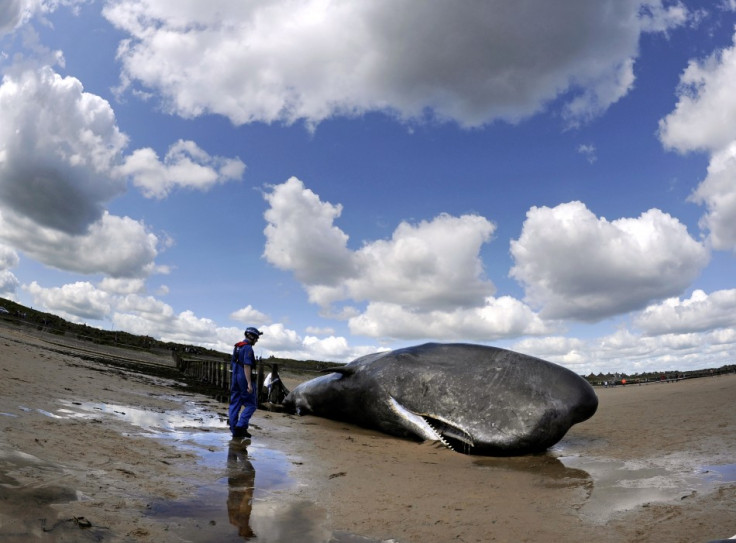Thousands of Whales, Dolphins and Porpoises Strand Themselves on UK Beaches

More than 3,400 whales dolphins and porpoises have beached on UK shores over the past six years, a new study reveals.
The figures, released by the UK Cetacean Strandings Investigation Programme (CSIP) on Wednesday, show an increase in strandings of certain species, such as the humpback whale.
The most common causes of death included starvation, infectious disease, becoming entangled in fishing nets and porpoises having been attacked by bottlenose dolphins.
Cases of bycatch, where fish are caught unintentionally and killed, were lower than during the first half of the decade, but nevertheless remain common.
There was also a slight decline in beachings of dolphins and harbour porpoises, according to the CSIP study, coordinated by the Zoological Society of London.
For its research, the CSIP conducted more than 750 post-mortem examinations on stranded animals and investigated high-profile cases, including the northern bottlenosed whale that swam up the Thames in 2006. The 18ft-long mammal died in the river despite attempts to save it.
"Whale and dolphin strandings are distressing and we need to understand why they happen and what can be done to prevent them," said Environment Minister Richard Benyon.
"The UK CSIP is carrying out valuable work on whale and dolphin strandings, which will help shed more light on this issue so that we can reduce the incidence of strandings in the future."
To continue its research, the CSIP is appealing for support from members of the public.
"Without the help of the UK public over the last six years, we would not have been able to investigate strandings effectively," said Rob Deaville, project manager for the CSIP.
"However, some strandings are still going unreported in the UK, so we are launching a new campaign to encourage more people to report stranded animals to us, helping build on our understanding of the threats that these charismatic species may face in UK waters," Mr Deaville added.
Illustrated leaflets containing information on how to identify stranded animals will be distributed to people on coasts across the UK.
© Copyright IBTimes 2025. All rights reserved.





















